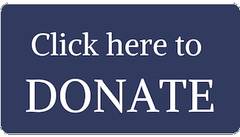This week, our Torah portion, Lech L’cha, introduces us to Avram (as he is first known): “Go forth from your land, from your birthplace, from your father’s house, to the land that I will show you.” (Genesis 12:1) He leaves behind security and familiarity and steps into a world of promise, challenge, and responsibility.
This journey of faith invites each of us to step beyond our comfort zones, to open our hearts and our hands to our neighbors, especially those among us who are vulnerable, hungry, or overlooked.
At this moment in the United States, a troubling situation is unfolding. The Supplemental Nutrition Assistance Program (SNAP), which supports millions of low-income Americans in putting food on the table, is facing possible disruption beginning tomorrow, November 1st, due to the ongoing federal government shutdown. Individual states are warning that unless funds are restored, the benefits due in November may be delayed or withheld.
According to North Carolina Governor Josh Stein: “More than 600,000 households comprising 1.4 million individual North Carolinians are due to receive SNAP benefits to help put nutritious and healthy food on the table in November. Four in five North Carolina families participating in SNAP have either a child, senior, or an adult with a disability. There are more than 580,000 children in North Carolina that rely on SNAP and more than 80% of people receiving SNAP benefits are working.”
(North Carolina Governor’s Office Press Release, October 27, 2025)
This is not an abstract policy problem. These numbers represent our neighbors, friends, congregants, parents choosing between rent and food, children going to bed hungry, elders struggling to stretch a fixed income. When basic food security is threatened, dignity is at risk.
In Judaism, our society is built upon the concept of kavod, the notion that every human being is worthy of dignity and honor. We are taught that each person is created b’tzelem Elohim – in the image of God. To honor another person’s dignity is, in essence, to honor God. This idea is reiterated in many places throughout our sacred texts, including this commandment from Deuteronomy: “If there is among you a needy person… you shall not harden your heart nor close your hand from your needy kin.” (Deuteronomy 15:7)
Our tradition does not merely suggest generosity, it commands it. The Torah goes even further: it embeds justice and compassion directly into the structure of society. In the biblical agricultural system, the Israelites were required to leave the corners of their fields (pe’ah) and the gleanings (leket) for those in need, specifying: the widow, the orphan, and the stranger. These gleanings did not belong to the landowner to “give away." These gleanings rightfully belonged to those who needed them. The poor could gather from the fields with dignity, without reproach, without shame, and without owing anyone thanks. This is one manner of how an ideal society protects the vulnerable.
This is not about giving charity, it is providing justice, tzedek. It is the affirmation that every person has the right to sustenance and the right to live with dignity. Moses Maimonides (the great Medieval philosopher, rabbi, physician, also known as the Rambam) taught that the highest form of tzedakah is to enable someone to stand on their own with self-respect.
So when we read this week’s Torah portion Lech L’cha about Avram stepping into the unknown, we understand that this is also about each of us stepping outward – and upward – into God’s call to care for one another. We, too, are summoned to leave behind the comfort of saying “the issue with SNAP is not my problem." Rather, we are to embrace the sacred work of ensuring that no one in our midst is left without the means to eat.
When we advocate for policies that protect those at risk, when we volunteer, donate, or simply see and affirm the humanity of another, we fulfill the mitzvah of kavod habriyot, honoring the dignity of all creation.
How We Can Respond: An Action and Resource Guide (If You are in need, please see below)
Recognize the need: Understand how deeply food insecurity affects millions, including many who are working full-time.
Act locally: Support food pantries, contribute to food drives, volunteer with local agencies, and help connect individuals to SNAP and other resources.
Advocate nationally: Let our leaders know that caring for those in need is a moral and spiritual obligation, not a matter of political expediency. It is critical to contact your members of congress and other elected officials and let them know your opinions, ideas, thoughts.
Preserve dignity: Give and act in ways that affirm each person’s worth and humanity.
If you or someone you know is in need of assistance in NC, Governor Josh Stein’s office provided these NCDHHS guidlines for people who depend on food and nutrition benefits:
1. Continue to Apply and Renew: All residents should continue to apply for SNAP benefits and submit renewal paperwork on time. County DSS offices remain open and are processing all applications to prevent a backlog when funding is restored.
2. Check Your Balance: Any benefits currently on your EBT card are still available to use. Check your balance on the ebtEDGE app, at ebtEDGE.com, or by calling the number on the back of your card (1-888-622-7328).
3. If you or your family is in immediate need for food resources, please call 2-1-1 to be connected with local resources. You can also visit the NCDHHS website dedicated to food access to find a food pantry closest to you.
If you are in need of immediate food resources, please reach out directly to either me, Rabbi Sobel , or Zemer Lexie Nuell in confidence.
The Ramban also teaches that Lech L’cha marks the beginning of a journey not just for Avram but for all who would follow after him. Each generation is called to set forth, to build a more just and compassionate world.
As we face uncertainty about how millions will put food on their tables in the coming weeks, may we hear that same Divine voice urging us to “go forth” from apathy to action, from concern to care, from comfort to compassion.
May our hands remain open, our hearts responsive, and our actions guided by kavod and tzedek, dignity and justice.
Shabbat Shalom!
Rabbi Sharon L. Sobel
Interim Rabbi
Temple Beth Or
rabbisobel@tboraleigh.org










